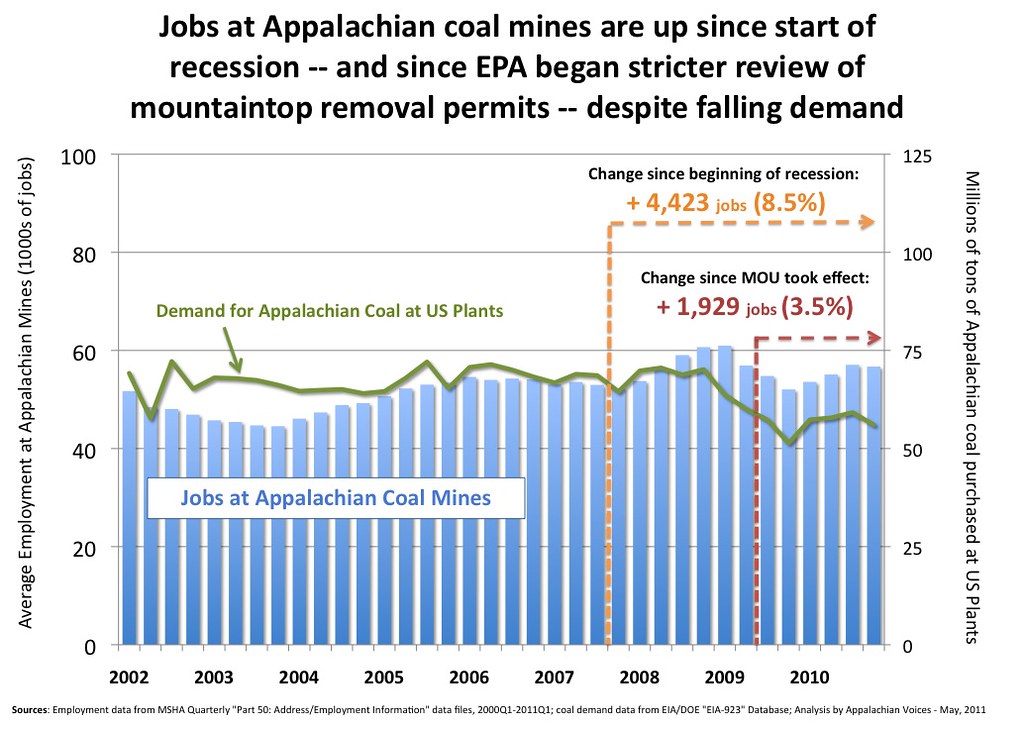Rahall Legislates that Water Stop at State Lines. Seriously.
 Yesterday evening the House of Representatives passed The Clean Water Cooperative Federalism Act (HR 2018), a bill that turns back the clock forty years on the environmental and public health protections in the Clean Water Act. This brazen attack on public protections is the closest big industrial polluters have ever come to completely gutting laws that protect Americans’ ability to access clean water.
Yesterday evening the House of Representatives passed The Clean Water Cooperative Federalism Act (HR 2018), a bill that turns back the clock forty years on the environmental and public health protections in the Clean Water Act. This brazen attack on public protections is the closest big industrial polluters have ever come to completely gutting laws that protect Americans’ ability to access clean water.
Colorado Democratic Representative Jared Polis perhaps said it best:
“Let’s not fool ourselves, the bill before us today isn’t just about the role of federal government, the bill isn’t just a push for state sovereignty; rather, this bill would satisfy two very niche special interests at the cost of the American public. This bill is designed to benefit mountaintop coal mining companies and large factory farms.”
Polis is, of course, absolutely right. Meanwhile, cowards like Nick Rahall keep up this charade that this is somehow about “protecting Appalachian jobs.” Inconveniently for them, there are facts. The FACTS ARE: Mining jobs in Central Appalachia have increased since the MOU because companies are doing less mountaintop removal and relying more on underground mining. Underground mining employs more people.

We’ve said it before, and we’ll say it again: There IS an attack on mining jobs in Central Appalachia, and its called mountaintop removal.
The Votes
There were several recorded votes. One for the final bill, once on the motion to recommit, and then 6 amendments related to protecting clean water. I’ve excluded the Capito amendment, because the politics around that will be substantially different. Most Democrats voted FOR these pro-water amendments, and most Republicans voted AGAINST these pro-water amendments. We’ll note the variation below.
Lets look at the vote on final passage first.
(HR 2018 Mica-Rahall: Clean Water Cooperative Federalism Act”)
| HR 2018 |
Ayes |
Nays |
Not Voting |
Republicans |
223 |
13 |
3 |
Democrats |
16 |
171 |
5 |
Total |
239 |
184 |
8 |
Ds voting Aye: Altmire, Baca, Barrow, Boren, Boswell, Cardoza, Costa, Costello, Critz, Cuellar, Holden Matheson, McIntyre, Rahall, Ross, Peterson
Rs voting Nay: Dold, Fitzpatrick, Flake, Hayworth (NY), Johnson (IL), Lance, LoBiondo, Reichert, Riggell, Smith (NJ), Wittman, Wolf, Young (FL)
For brevity’s sake (and because HTML tables take forever to make) The other amendments were Jackson-Lee (1 – 2), Carnahan, Blumenauer, Connolly, and Polis.
So, between all of these votes and the amendment votes on HR 1 earlier this year, a clearer picture is beginning to emerge of where politicians stand on protecting water quality in this country. Generally, most Democrats have voted for what we would call environmental protection. There have been 11 votes when a meaningful number of them have bucked their party and voted against protecting clean water. These are listed below. Generally, most Republicans have opposed what we would call environmental protection. There have been 8 votes when a meaningful number of them have bucked their party and voted to protect clean water. These are listed below.
*please click to “embiggen” table

So, for instance, Republicans Chris Smith, Tim Johnson, and Mike Fitzpatrick have cast 8 of 8 “good” votes in favor of protecting clean water. Democrats Boren, Critz, Holden, Matheson, Rahall, and Ross have cast 11 of 11 “bad” votes in favor of eliminating protections for clean water.
 As big coal and their allies in Congress continue to attack, undermine, and gut public health and environmental protections, Appalachian Voices, the Alliance for Appalachia, NRDC and others continue to play offense by promoting the bipartisan Clean Water Protection Act (HR 1375). This bill would make it illegal to dump toxic waste from mountaintop removal mines into our headwater streams in Appalachia.
As big coal and their allies in Congress continue to attack, undermine, and gut public health and environmental protections, Appalachian Voices, the Alliance for Appalachia, NRDC and others continue to play offense by promoting the bipartisan Clean Water Protection Act (HR 1375). This bill would make it illegal to dump toxic waste from mountaintop removal mines into our headwater streams in Appalachia. 


 Yesterday evening the House of Representatives passed The Clean Water Cooperative Federalism Act (HR 2018), a bill that turns back the clock forty years on the environmental and public health protections in the Clean Water Act. This brazen attack on public protections is the closest big industrial polluters have ever come to completely gutting laws that protect Americans’ ability to access clean water.
Yesterday evening the House of Representatives passed The Clean Water Cooperative Federalism Act (HR 2018), a bill that turns back the clock forty years on the environmental and public health protections in the Clean Water Act. This brazen attack on public protections is the closest big industrial polluters have ever come to completely gutting laws that protect Americans’ ability to access clean water. 





 Water is perhaps the ultimate argument for federalism. It’s everywhere. It crosses every line. It’s in the air, it’s on the surface, it’s underground, it’s all around. Even many of the anti-science, reality denying cowards in Congress like Nick Rahall understand the basic fact that rivers don’t stop at a state line. But that doesn’t stop politicians from trying to “secede” from keeping America’s water clean. Yesterday, the House Transportation and Infrastructure Committee passed “
Water is perhaps the ultimate argument for federalism. It’s everywhere. It crosses every line. It’s in the air, it’s on the surface, it’s underground, it’s all around. Even many of the anti-science, reality denying cowards in Congress like Nick Rahall understand the basic fact that rivers don’t stop at a state line. But that doesn’t stop politicians from trying to “secede” from keeping America’s water clean. Yesterday, the House Transportation and Infrastructure Committee passed “